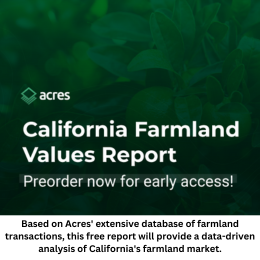September 7, 2018
By Michelle Pelletier Marshall, GAI Media
Global demand for seafood has increased 3.2 percent per year since 1960, outpacing the 1 percent annual growth in global population. Additionally, per capita consumption has doubled over the same period. To satisfy this thirst for seafood, fish farming has increased – overtaking wild caught fish – and is forecasted to be a $250 billion market by 2026. As a result, the demand for fish feed has grown exponentially as well.
Enter Massachusetts-based KnipBio, a biotechnology company that has moved to the forefront of innovators in its category to provide a premium fishmeal replacement formulated from a single-cell protein bacteria called KnipBio Meal (KBM). Affordable and sustainably produced, KBM went commercial earlier this year. This game-changing protein feed ingredient is created through a brewing process that results in a milky broth that, once spun and dried, ends up as a “flour feed”.
The naturally occurring microbe strains used in the production process convert ethanol, methanol, and other low-cost waste feedstocks into a superior feed ingredient that does not present many of the challenges, such as fish mortality and stomach inflammation, of soy or corn-based proteins. To date, the early-stage venture company has raised $5.6 million.
GAI News spoke with CEO Larry Feinberg for more on this breakthrough technology and its future in aquaculture.
1. What led KnipBio to look to bacteria as a source for creating fish feed? What are the major advantages of this over other feed sources, such as plant-based or insect-based options?
Microbes are the most ancient and physiologically diverse life forms on Earth. We have learned to farm animals, plants, and fungus – and now single cell protein (SCP) companies like KnipBio are developing a new crop of fermentation-derived microbial proteins to expand our basket of ingredients. Microbes can grow rapidly on a variety of low-cost feedstocks. The use of biotechnology enables rapid strain development where new lineages can be developed virtually every week. Overall, the potential to ensure product quality, traceable batch lots, and a dramatically smaller environmental footprint are just some of the advantages to this approach.
2. In your processes, the bacteria are fed as required to produce the desired nutrition mix. Which fish species is KnipBio equipped to feed with its product, and what type of initial trials have proven its success?
Through our bio-tailored library of strains, and our control of the fermentation process, we can “brew” proteins with varying traits. These properties can be optimized for different species, or even life stages as we learn more about the nutritional requirements of the animals we farm. To date, we have worked with many model carnivorous fin fish such as salmonids and seriola, as well as crustaceans including Pacific white shrimp. We have found that our SCPs are pretty versatile as a protein source and may offer additional benefits including enhancing the animal’s ability to handle stressful conditions, disease resistance, and provide a source of immuno-nutritional functional ingredients.
3. This year has been a big one for KnipBio – which was established in 2013 – especially with the collaboration with the biofuels industry to create a commercial-scale fermentation process. Can you explain more about where KnipBio is as far as commercialization and what this means for growth of the company?
We are delighted to have struck a collaborative relationship with ICM Inc. They are leader in engineering and commercializing technologies within the fuel ethanol space, responsible for designing more than 50 percent of the industry’s plants. ICM’s success is in part due to the intelligence of their approach which simplifies industrial bioprocesses at massive scale. My expectation is that they will do the same as we address food insecurity in the 2020’s as we did energy in the 2000’s.
Together with ICM we are exploring the use of ultra low-cost feedstocks that, if successful, will dramatically reduce the cost of our protein.
The ethanol industry is not in the growth phase it once was but the established infrastructure is highly compatible with KnipBio’s microbe fermentation process. In a not-too-distant future, I could imagine a protein production facility being bolted alongside existing plants to expand the product portfolio of a modern biorefinery.
4. Given that four of out of every 10 pounds of consumed animals are fish, early innovators in the aquaculture sector stand to gain much ground. What do you see as the potential for KnipBio in this lucrative market category, and what future funding rounds do you foresee?
With certainty, aquaculture will continue to grow as both the population and affluence of developing nations rise. There is a lot of opportunity for entrepreneurs in this space but we have to solve a number of different problems in order for this industry to live up to its potential, most notably – how are we going to feed all these fish? Estimates are that aquaculture will need close to 20 million tons of additional protein by 2026. Fishmeal product is essentially flat and more soy protein can only come at the expense of the human food chain. Alternatives such as KnipBio Meal, algae, and insects will have to fill this gap.
I expect a growth equity round in the near term that will expand our product pipeline development in parallel with the commercialization of our first products. We are also planning our first large-scale, dedicated product facility for next year
5. Sustainability is a crucial part of the mission of KnipBio. What type of partnerships have you formed along these lines?
Environmental stewardship has to be part of any enduring aquaculture business and our resolve to develop alternatives to our existing basket of ingredients is firm. We have worked with various NGO’s to align our product development with the goal of solving real environmental problems. To increase our level of scientific transparency, we conducted a series of feed trials and published the results in a peer-reviewed article with the director of sustainability from the New England Aquarium. KnipBio has registered its voluntary commitment with the United Nations’ sustainable development goal 14 (SDG14) to produce alternative fishmeal protein. We also work closely with World Wildlife Fund through its Conservation X accelerator program and are an active member of the F3 (Future-Fish-Feed) collaborative organization. In the future, perhaps through blockchain technologies, I would like to see feed ingredients become part of the certified program schemes.
6. KnipBio provides the research brains on the bacteria, but how have you implemented expertise on aquaculture nutrition and feed formulation into the mix?
Developing multiple microbial strain lineages, multiplied by the diversity of aquatic farmed species, starts to look like an advanced mathematical equation. Our core competency is in biotechnology and bioprocess development. While we have acquired some degree of knowledge about aquaculture nutrition along the way, there are so many dedicated and passionate life-long nutritionists that we call advisers, collaborators, partners, and friends that we can tap into. We have also partnered with academia to establish a dedicated feed trial laboratory to provide rapid turn-around results on the efficacy of our new strains.
7. KnipBio was chosen to present at GAI’s AgTech Nexus USA PitchFest at Boston’s Fenway Park earlier this year. What type of investment interest did this awaken and/or have you seen thus far?
Participating in GAI’s PitchFest was an honor. As a long time Red Sox fan, I have been bragging to my friends that I may be the only person they know who has actually pitched at Fenway! When I presented, we were not fundraising at that time. There were definitely some nice connections made and follow up conversations that continued as recently as this past week. The quality of attendees and intimacy of the event were key factors to help foster this. Thank you again for the opportunity!
Michelle Pelletier Marshall is the managing editor for Global AgInvesting’s quarterly GAI Gazette magazine and a regular contributor to GAI News. She can be reached at mmarshall@globalaginvesting.com.

Let GAI News inform your engagement in the agriculture sector.
GAI News provides crucial and timely news and insight to help you stay ahead of critical agricultural trends through free delivery of two weekly newsletters, Ag Investing Weekly and AgTech Intel.




